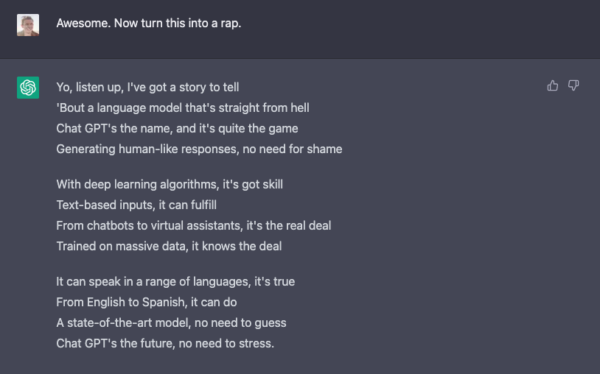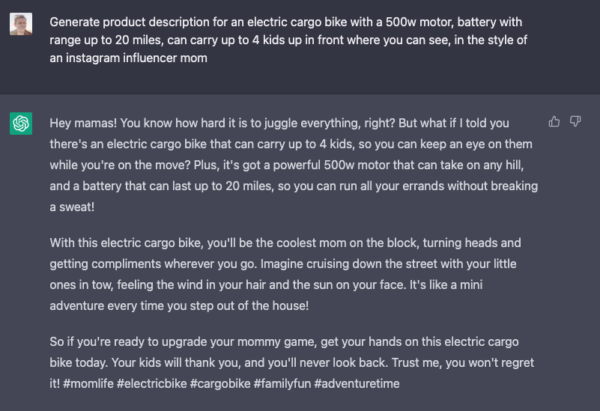Last year we had over 4,000 discussions in the eCommerceFuel Forum. These online conversations end up saving eCommerce entrepreneurs hundreds of thousands of dollars a year. Users trade advice on new marketing channels, innovative technology, and even share about their mental health and how to thrive as an entrepreneur in the eCommerce space.
With all of this fantastic information going around, we’ve decided to share the top five takeaways from the eCommerceFuel Forums in 2022. Here’s hoping this crowd-sourced advice can save you money and improve your eCommerce business in 2023 and beyond.
eCommerceFuel is a closed community, so the names, businesses, and specific details of posters remain private. But if you want the full scoop and support of our most brilliant (and helpful) members, you should join the eCommerceFuel Forum.
1. STOP Taking Fixed Fee Loans – This Is an Intervention!
This is a BIG one on the forum. The original thread exploded with over 275 replies (as of today), and the conversation is still going.
Here’s the core of it:
Does it make more sense to take a loan with a fixed fee of 9% or use a business credit card at 22% APR for a purchase?
You probably picked the 9% fixed fee, right? Almost everyone would. It’s the lower number and it seems like a no brainer.
Unfortunately, it’s a little more complicated than it looks on the surface. Our forum member, Bill D’Alessandro, actually created a calculator to demonstrate exactly how shockingly expensive fixed rate loans can be.
This handy Fixed Fee Loan Calculator:
- Converts a fixed fee loan into monthly payments
- Displays the interest rate for each month
- Calculates the APR
Most fixed fee loans ultimately end up in the 30-44% APR range! Maybe you need this specific loan type for another reason. But in most cases, it turns out that it’s much more efficient to use a business credit card at 22% APR.
In fact, almost ANY funding source will be cheaper than a fixed fee loan. If you need cash to grow your online store, then we cover a variety of options in our financing for your eCommerce business article.
2. Polish Your Financials for the Most Lucrative Business Sale
When you decide to sell your business, you have to make it appealing for a buyer. Potential purchasers will be primarily focused on the financials. These numbers will back up your company’s success story. If they aren’t in good shape it doesn’t matter how much potential there is.
One of our members recently sold her eCommerce business. Her biggest recommendation for polishing the business’s financials was to use accrual accounting instead of cash based accounting.
Accrual accounting focuses on matching up revenues with the actual costs to generate those revenues. In the eCommerce world, businesses often order huge amounts of inventory. Accrual accounting is the only way to get an accurate picture of the financial health of your business and is downright critical to adopt if you want to sell for any meaningful amount of money.
The same member encouraged those who might be looking to sell to do everything in their power to increase their EBITDA. And ideally, you should do that at least one year prior to sale.
Typically, buyers make an offer that is a multiple on your ??EBITDA. In the retail space this could be as much as 10 times your EBITDA. So every dollar you increase your EBITDA is multiplied – and that can add up quickly!
3. Focus on “Brand Lift” When Using Paid Ads
A new member of the eCommerceFuel forum highlighted “brand lift” when discussing how he tracks the success of his paid ads.
According to the user, he spent $8,000-$18,000 per day (about $5M annually) on paid ads. He makes that investment work by ignoring misleading numbers, and focusing on the right metrics.
Instead of trusting an ad platform, which can have trouble tracking users across multiple devices and sessions, he recommends you build your own tracking spreadsheet.
The key metric to focus on is “brand lift,” which he describes as:
“…my total sales for that brand through ALL of my channels.”
For example, say you run an ad for hand lotion for one week.
You should track:
- How many additional units of hand lotion you sell across every sales outlet (including Amazon, eBay, Etsy, and direct website sales)
- How many new customers came to you specifically for hand lotion
- How many times hand lotion was added to a cart
- How much your average-order-value (AOV) increased
More generally, the key to paid ads is focusing on the metrics that matter, and ignoring the metrics that don’t.
4. Experiment With ChatGPT for eCommerce
We had another relatively recent blockbuster discussion which focused on technology. This thread has 229 replies (and counting), and it centered on the fascinating and fret-inducing subject of artificial intelligence. Namely, ChatGPT.
It may not be the robot uprising, but it is a remarkably intuitive step towards computer thinking. And it’s not like other technological innovations with overhyped benefits, decades away from practical use (3D Printers and crypto-currency come to mind). ChatGPT is free and you get results within seconds.
ChatGPT came out at the end of 2022 and it’s the fastest growing consumer app of all time. Only two months after they launched, they had 100 million users.
You can ask ChatGPT anything. It created this response in a few seconds:

What makes it truly ingenious is that ChatGPT is iterative and understands context. Once you get your response, you can ask it to update, add, subtract, or take on a totally different vibe.
To demonstrate, I asked ChatGPT to change the description of itself into a rap:

So do you apply this incredible tech to eCommerce?
Well, unfortunately for its human counterparts, ChatGPT is around 80-90% as good as a living copywriter. And instead of taking an hour or more to turn a description into a silly rap, ChatGPT can do it in seconds.
One forum member said:
“I think the future with AI in the near term is going to be “AI created, human edited”
And I agree. ChatGPT can fill a page with decent quality information, and put out a solid first draft. Our rap isn’t about to win a Grammy, but the right human editor could turn it into a charming piece of marketing material.
On the eCommerce Fuel forum, most discussions of ChatGPT center around how eCommerce merchants can use it and what prompts work best. By far, the most popular suggestion is to use the tool to write initial product descriptions.
Check out this description, based on a prompt suggested by a forum member:

Then you can ask ChatGPT to convert that description into a TikTok video or any other format for marketing purposes.

There isn’t a single correct way to use ChatGPT. It’s a brand new tool with endless possibilities. It could make your emails sound friendlier, get you started on an SEO focused blog post, or create initial copy for a landing page. Start experimenting with ChatGPT, and have fun!
5. Prioritize Your Mental Health
This could apply to nearly anyone in any industry, but in the eCommerce space, where many are do-it-yourself entrepreneurs, this is especially important to remember.
On one of our threads, a member described the lead up of the past several years to his ultimate breaking point. He was used to handling everything on his own, shoving his feelings down, and somehow making it work.
But you can’t bury your feelings forever. Eventually they leak out all over, leaving you an exhausted, irritable, distracted, pessimistic mess.
One thing everyone on the thread agreed on: Entrepreneurship is hard. It’s difficult to talk about getting a $500k line of credit from the bank because people might think you’re making truck loads of money. It’s tough to get rid of an employee or contractor who is a bad fit for your organization, but an otherwise nice person.
It’s challenging for entrepreneurs to find a community who truly understands their specific situation and struggles.
That’s one of the reasons why the eCommerce Fuel community exists. It offers a place for people to talk about the tactical (how do we use ChatGPT), the strategic (should I sell my business), and the personal.
The member who described his emotional struggles, also offered a solution that helped him. He said he took a course which massively helped him reframe his situation and gave him tools to better handle the emotions that come up in this line of work.
He said:
“My situation is pretty much the same, but my perspective and my outlook has changed. I have a plan that I’m implementing. My confidence is not always steady or 100%, but I know where to turn when that happens and get support.”
As an entrepreneur, you are the heart and soul of your business. So make sure caring for that heart and soul remains a priority.
Final Thoughts: Key Takeaways From the Top 5 Most Impactful ECF Forum Discussions
Last year eCommerceFuel had 4,000+ posts and 20,000+ comments. We’ve shared highlights from just a few of the most popular threads with you. Our members have a wealth of combined knowledge they’re sharing with each other every day.
So if you want to avoid financial mistakes, learn how to sell your business, master paid ads from someone who spends $5 million a year, explore new technology like ChatGPT, and have the occasional mental health check-in, then join the community!
If you are already a member here are links to the private forum discussions:
- Entrepreneurs, STOP Taking Fixed Fee Loans – This is an Intervention!
- Set For Life in 5 Years And What I Learned From Selling a Brand
- I Spent $15,000,000 Ads – Here’s What I Learned
- This is Bananas – Chat GPT for eCommerce
- How Are You Doing Mentally/Internally?